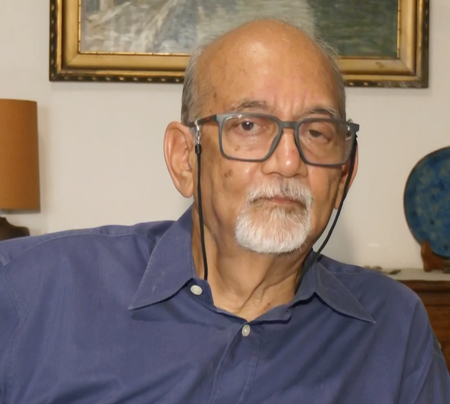
New Delhi: Former Indian diplomat D.P. Srivastava said on Sunday that Prime Minister Narendra Modi’s upcoming visit to Canada for the G7 Summit presents a timely opportunity to restore India-Canada bilateral relations, which have remained strained since 2023.
In an interview with IANS, Srivastava said, “Prime Minister has accepted the invitation to go to the G7 Summit. So the focus will be on global issues, not on bilateral relations. But, of course, when leaders meet, they discuss the entire range of issues, and this will be a good opportunity to bring the bilateral relations back on an even keel.”
PM Modi received a formal invitation from Canadian Prime Minister Mark Carney on Friday for the G7 Leaders’ Summit, where India will participate as an Outreach Country. Though not a permanent G7 member, India’s inclusion again signals recognition of its growing geopolitical and economic clout.
India-Canada relations were severely hit in 2023 after then Prime Minister Justin Trudeau accused India of involvement in the killing of Khalistani separatist Hardeep Singh Nijjar on Canadian soil.
India called the allegations “absurd and politically motivated.” The standoff escalated with both nations expelling diplomats, freezing trade talks, and suspending official visits.
“We had good relations with Canada, and I believe there’s a better understanding of India’s position in the new government there about the impact of terrorism,” Srivastava said.
“The new government is unlikely to use these incidents as an electoral card. So we hope this visit will bring about a clearer understanding between the two countries,” he said.
The summit, to be held in Kananaskis, comes as new Canadian PM Mark Carney has signalled interest in revitalizing economic ties with India.
Srivastava also commented on the April 16 hate speech by Pakistan Army Chief Gen. Asim Munir, delivered days before the terror attack in Pahalgam.
He said Pakistan’s ideological confusion is deeply rooted: “The ideology of Pakistan is not defined because of the persuasive influence in that country… Even before the Constitution was framed in 1973, the Supreme Court had banned the National Awami Party citing ideological grounds.”
Slamming Gen. Munir’s ideological rhetoric, he said, “It is strange that Pakistani army chiefs talk about religion and ideology. In most countries, armies protect borders; in Pakistan, they are guardians of ideology.”
Hailing Operation Sindoor — India’s surgical response targeting nine terror hubs in Pakistan and Pakistan-occupied Kashmir — Srivastava said it reflects a major shift in India’s national security doctrine.
“Operation Sindoor represents a strategic shift. For long, Pakistan used the threat of nuclear escalation to deter India’s conventional response to terror attacks. This time, there was no talk of nuclear retaliation from Pakistan,” he said.
“Pakistan’s bluff has been called. It can neither escalate a local conflict nor deter India from military responses to terrorism,” he added.
“This sends a strong message globally that India will exercise its right of self-defence — responsibly, without escalation.”
Srivastava noted that India conducted the operation with restraint and clarity, reinforcing its position as a responsible global power unwilling to tolerate terrorism.
